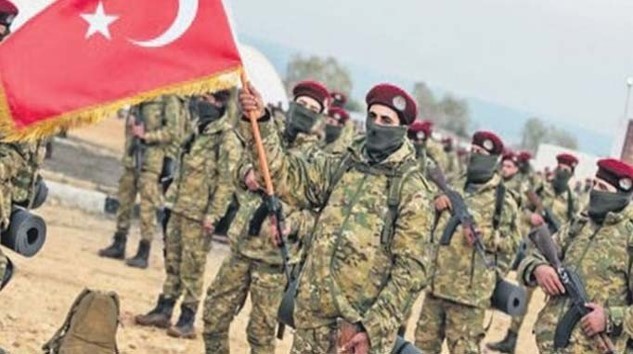Nordic Monitor
The Turkish military implicitly accused the country’s National Intelligence Organization (MIT) of not properly monitoring Syrian rebels who had completed training programs in special camps located in southern Turkey, internal military memos have revealed.
The intelligence agency coordinated the enlistment of Syrian rebels and oversaw their activities in Syria, while the Turkish military handled the training, arming and equipping of the fighters. According to the confidential draft memos, MIT did not meet the goals of the special program as the rebels were unsuccessful in a territory located Syria’s southwestern Idlib province called “Zeytinlik” by Turkey and which covers an area 98 kilometers long and 40 kilometers wide between Jarablus and Azaz.
In February 2015 the US and Turkey signed an agreement to train and equip moderate Syrian opposition fighters, and Ankara agreed to provide an equal number of trainers to work alongside American military personnel.
Secret Turkish military memos:
The US equipped rebels to establish a 5,000-strong rebel force during the Obama administration, but the plan was shut down in October 2015 after most fighters either deserted and joined radical groups including the Islamic State in Iraq and Syria (ISIS) or were captured by rival factions. The Pentagon continued the program with some adjustments in 2016, only to cancel it in 2017 on the order of President Donald Trump.
Since then, Turkey has continued training rebel militia in Turkey in explosives, IEDs. sabotage and other special operations after the United States withdrew from the training program.
In order to achieve success, the training program should be coordinated by second the Special Forces Operation Base (Özel Kuvvetler Harekat Üssü, or ÖKHÜ-2), and a Syria Task Force (Suriye Görev Gücü, or SGG) including representatives from the Turkish military, intelligence and foreign ministry should be set up in line with a government decree, the memos stated. ÖKHÜ-2 was created by the Turkish military on August 6, 2015 in the border province of Kilis specifically for training rebels to deploy in an offensive targeting the Zeytinlik region.
According to the documents, the training program would be conducted in the town of Serinyol/Güllük in the southeastern province of Hatay near the Syrian border, and an operations base in Syria would also be established for further development of the project. In that regard, ÖKHÜ-2 was to command rebel militia and their operations in conflict areas while Turkish intelligence would be responsible for their transfer into Syria.

Moreover, the military memos underlined the fact that the selection of leading fighters, who are supposed to guide the Syrian militias, from camps and the local population would be difficult, and thus Turkey could designate a Syrian militia group that would not be opposed by members of by the US-led Global Coalition to Defeat ISIS as the central force of the Syrian militia. Then, it would be announced that the new militia structure is set up for the fight against ISIS. In such a case, the coalition might provide air support to the Syrian rebels trained by the Turkish military.
Furthermore, Turkish military members insisted on seeking Russia’s agreement on the proposed structure of the training program, the military notes revealed.
In addition to Turkish government funds, the Turkish military was also planning to ask Qatar and Saudi Arabia to cover some of the costs and provide arms, ammunition and equipment, the documents indicated.












